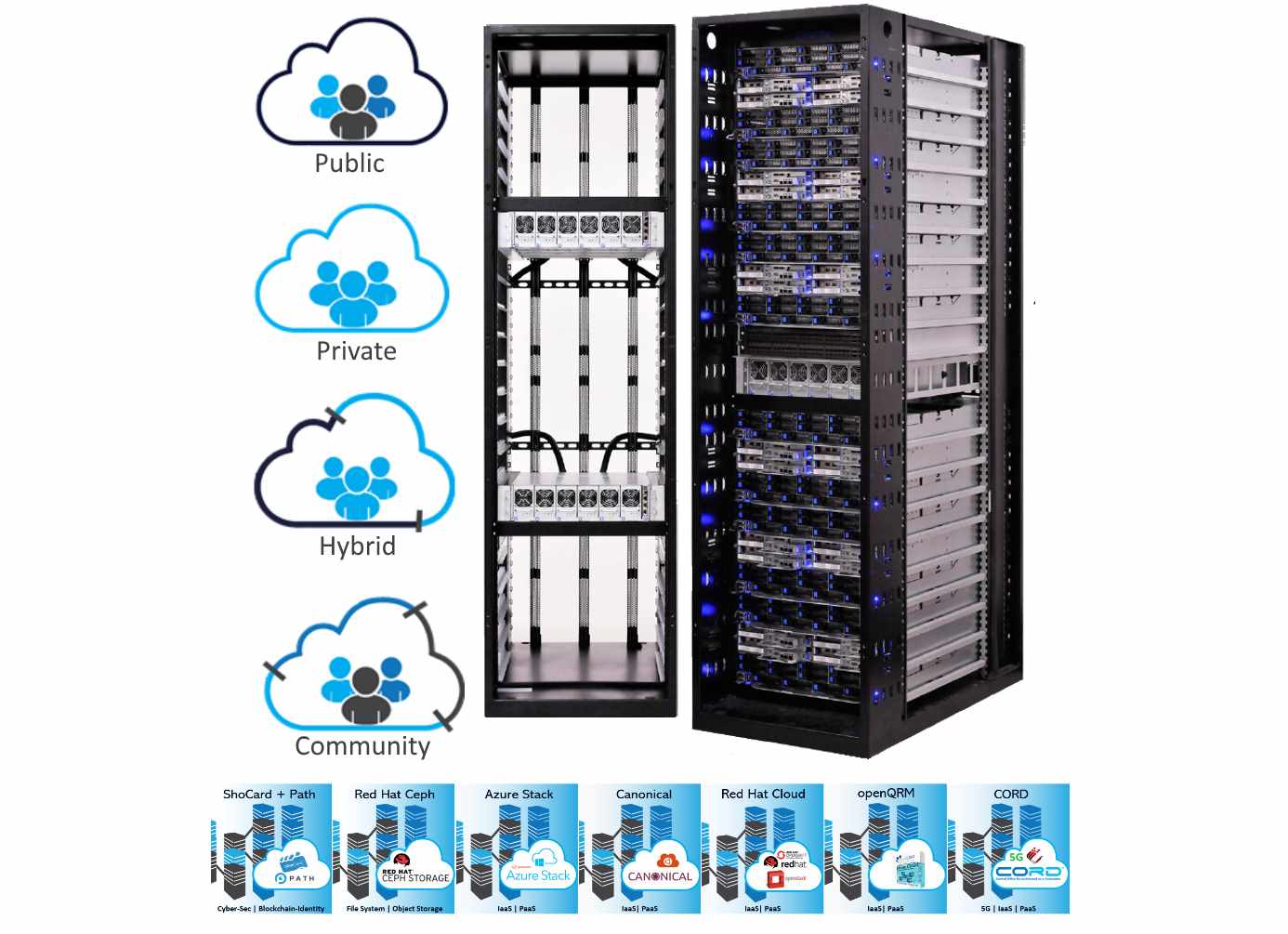Public Private Hybrid or Community Cloud: Which is best for YOU?
There are several critical decisions you need to make as your organization takes its first step into cloud computing:
|  |

TIP: You may find that one cloud model works best for one project but not another. It’s about finding the best balance of Speed, cost, utilization & compliance.
Public cloud | Is a public cloud right for you? | If you can tick most of these indicators, public cloud may be your best option |  |
Speed | Your project needs to get up and running in under six months
| ||
Budget | There’s no capex budget available for this project
| There’s minimal opex budget available for this project
| |
Resources | Your technical team is very small
| Your technical team doesn’t have a lot of virtualization or cloud experience
| You struggle to hire developers and sysadmins with cloud skills
|
Demand | Demand for your cloud application is likely to be unpredictable
| Demand for your cloud application or service will experience peaks & troughs
| Your current IT infrastructure will struggle to handle the workloads
|
Privacy | Compliance | You are happy to host your applications and data in a 3rd party data center
| You are comfortable making your applications & data accessible via the internet
|

TIP: A public cloud approach may seem much more cost-effective than deploying a private cloud, but beware the effects of ‘image sprawl’. Using licensed operating system software to create virtual machine instances in the cloud means costs can quickly spiral out of control. To keep costs down – and for greater ease of management – use a free, open source operating system instead. (HINT: Ubuntu is completely free no matter how many instances you use.)
Private cloud | Is a private cloud right for you? | If you can tick most of these indicators, private cloud may be your best option |  |
Speed | You have the time to build, an internal private cloud first before deploying your apps
| You already have the cloud infrastructure available
| |
Budget | There is capex or opex budget to build the private cloud infrastructure
| There is budget available to operate & manage the cloud infrastructure
| |
Resources | You have a good sized in-house technical team
| Your technical team has virtualization or cloud experience
| You have a budget to hire developers & sysadmins with cloud skills
|
Demand | Your cloud infrastructure will be able to handle demand even during high peaks
| ||
Privacy | Compliance | Your project involves sensitive data subject to data & privacy laws
| Your data & apps must be hosted on premise or at an approved dc in country
| Your SLA / IT governance policies specify that the data will be hosted by you
|

Provisioning and managing cloud services and workloads across thousands of server nodes can eat up your ops team’s time. With a private cloud, you can make use of orchestration and automation tools to provision nodes and deploy new services in the blink of an eye. Find out more about Canonical OpenStack, Red Hat OpenStack, openQRM and more.
Hybrid cloud | Is a hybrid cloud right for you? | If you can tick most of these indicators, hybrid cloud may be your best option |  |
Speed | You have the time to build, an internal private cloud first before deploying your apps
| You already have the cloud infrastructure available
| |
Budget | There is capex or opex budget to build the private cloud infrastructure
| There is budget available to operate & manage the cloud infrastructure
| There is budget available to connect to a public cloud (hybrid) when required
|
Resources | You have an internal cloud that is ready to use
| Your technical team has virtualization or cloud experience
| You have a budget to hire developers & sysadmins with cloud skills
|
Demand | Your in-house cloud may not be able to handle high peaks of user demand
| Your in-house cloud may not be able to handle bursts of data processing / analytics
| Workloads in your cloud are not being replicated in a second site and this has an impact to your service-availability
|
Privacy | Compliance | Your project involves sensitive data subject to data & privacy laws
| Your data & apps must be hosted on premise or at an approved dc in country
| Your SLA / IT governance policies specify that the data will be hosted by you
|

TIP: Seamless interoperability between different clouds is vital in a hybrid approach, so be cautious of using proprietary software components that will limit your ability to move workloads between cloud platforms.
Community cloud | Is a community cloud right for you? | If you can tick most of these indicators, community cloud may be your best option |  |
Speed | You have the time to build, an internal private cloud first before deploying your apps
| You already have the cloud infrastructure available
| You have joined, or are joining a community of common- industry organizations
|
Budget | There is capex or opex budget to build the private cloud infrastructure
| There is budget available to operate & manage the cloud infrastructure
| There is budget available to connect to a community cloud when required
|
Resources | You have an internal cloud that is ready to use
| Your technical team has virtualization or cloud experience
| You have a budget & staff to hire developers & sysadmins with cloud skills
|
Demand | Your in-house cloud may not be able to handle high peaks of user demand
| Your in-house cloud may not be able to handle bursts of data processing / analytics
| Workloads in your cloud are not being replicated in a second site and this has an impact to your service-availability
|
Privacy | Compliance | Your project involves sensitive data subject to data & privacy laws
| Your data & apps must be hosted on premise or at an approved dc in country
| Your SLA / IT governance policies specify that the data will be hosted by you
|
 TIP: Seamless interoperability is vital in any community cloud - compromised of multiple clouds by a group of common industry o organizations is vital in a hybrid approach, so be cautious of using proprietary software components that will limit your ability to move workloads between cloud platforms. For more, read our white paper: Creating the Open Cloud
TIP: Seamless interoperability is vital in any community cloud - compromised of multiple clouds by a group of common industry o organizations is vital in a hybrid approach, so be cautious of using proprietary software components that will limit your ability to move workloads between cloud platforms. For more, read our white paper: Creating the Open Cloud


 US site
US site